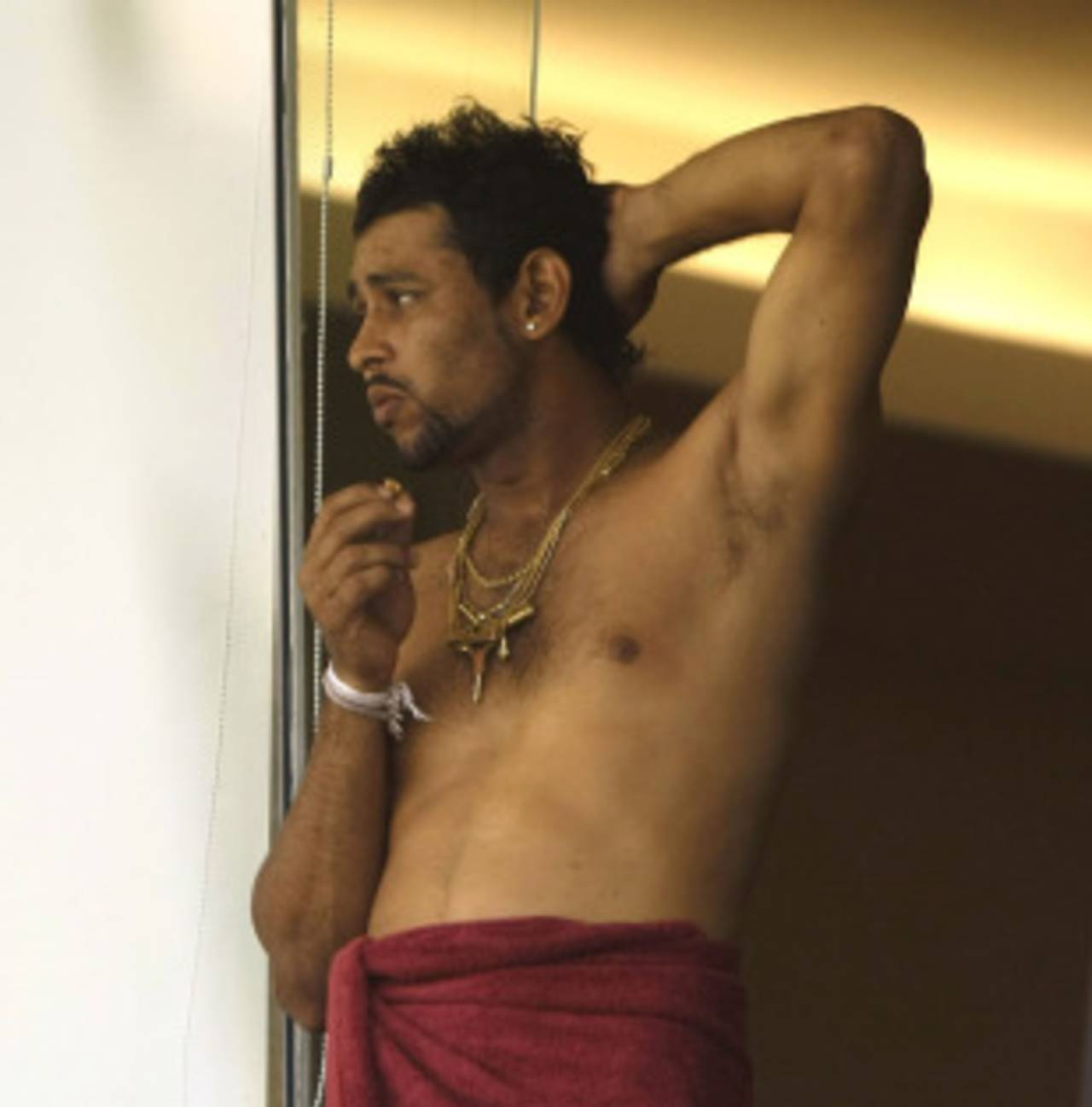A tricky job for an uncluttered brain
Dilshan's captaincy will surely mark a new era in Sri Lankan cricket. A mistake could set them back by years, but success will put him among the all-time Sri Lankan greats.
Sidharth Monga
19-Apr-2011

Tillakaratne Dilshan will need to tackle this job with as much care as he does his beard • Associated Press
Kumar Sangakkara didn't leave them any choice, did he? At 33, he said, he was not sure if he would be available for the next World Cup, and said he favoured a leader who would take the side into the next event, four years down the line. Except there was only one probable candidate younger than he: Angelo Mathews, who is yet to become a permanent fixture in the Test side.
Perhaps Sangakkara himself wasn't left with any choice. Perhaps the accompaniments to being captain had brought him down to a state where he could take no more. Surely this is not how it was meant to end? There is no way this ambitious and combative cricketer could have achieved all he would have wanted to as captain. In fact, he led for only two years.
Sangakkara has left the next four-year term to a man who will turn 35 this October. The man whose signature is a shot most daring of all, a shot that gives hope to down-on-luck dentists. A man, then, who should know a thing or two about risks.
However, does he? The last two captains - Sangakkara and Mahela Jayawardene, are both tough nuts. They both resigned from the job. It is a job that involved arguments not only with selectors but ministers too. It is a job that will now involve trying to win Tests without Muttiah Muralitharan. One can never be sure if Lasith Malinga will be available for the next Test either, or if he will last the one he's currently playing. This is every bit as tricky as the scoop Tillakaratne Dilshan plays, except there are no helmets here.
Winning Tests will now be more difficult than it has ever been since 1996 for Sri Lanka. The circumstances that made Sangakkara retire won't suddenly vanish either. This cannot be the best time to take on Sri Lanka's captaincy. It helps that Dilshan has an uncluttered brain, and will not think too much of the distractions. It takes an uncluttered brain to master a shot that can knock your own block off. It takes an uncluttered brain to bat the way he does at the top of the order. It takes an uncluttered brain to also take up the wicketkeeping duties in Tests when the regular keeper is injured, and then despite the obvious technical flaws manufacture two match-turning run-outs, as he did against Pakistan in Galle in 2009.
Ever since he moved to the opening slot, Dilshan has been Sri Lanka's most valuable player, especially considering the irregular presence of Murali and Malinga. Apart from his renewed batting, he brings canny part-time offspin and exceptional fielding. He also seems pretty vocal in offering advice when field settings or bowling changes are being planned. His role in the no-ball that denied Virender Sehwag a century in Dambulla last year - which landed him and Suraj Randiv in controversy - is a credit to his cricketing brain. The cheekiness, the street-smartness, cannot be denied.
It is apparent that Dilshan's adaptability across formats would have prevailed over the prospects of the likes of Mathews and Thilan Samaraweera, who are not definite picks in all formats
This appointment caps a remarkable turnaround in Dilshan's career since he moved to the top of the order. He has been a busy man ever since, intent on making up for the loss of promising years. In all three forms put together, Dilshan has been Sri Lanka's best batsman over the last two or three years. It is apparent that his adaptability across formats has prevailed over the prospects of the likes of Mathews and Thilan Samaraweera, who are not definite picks in all formats.
However, Dilshan is an unexpected man to now lead Sri Lanka: after the Zimbabwe tour last year, when he led a side that ran into disciplinary problems, he was sacked as vice-captain without official reason. He has never been a cricketer you would have expected to captain Sri Lanka. There is something about certain cricketers that identifies them as future captains, and Dilshan never had that.
It is good, though, that the appointment comes at a time when he is feeling good about his own game. He needs all that can go his way to go his way to succeed in this job. There are the obvious personal challenges, first of all. He has only scored one Test century outside the subcontinent, in Zimbabwe. It is quite similar to the challenges the team seeks to overcome: they are yet to win Tests in Australia, South Africa and India.
We will soon find out if Dilshan's confidence and his cricket awareness translate into good leadership. For captaincy, especially in the subcontinent, is not only about setting fields and changing bowlers, as Sangakkara and Jayawardene will testify. Dilshan will need to tackle this job with as much care as he does his beard. This is a delicate period in Sri Lankan cricket, a period of transition, without the services of a stable board - in fact, there is just an interim committee that keeps getting extensions. And while Sangakkara's was necessarily an extension of the Jayawardene way, with a few personal touches here and there, Dilshan will surely mark a new era. A mistake could set their cricket back by years, but success will put Dilshan among the all-time Sri Lankan greats.
Sidharth Monga is an assistant editor at ESPNcricinfo